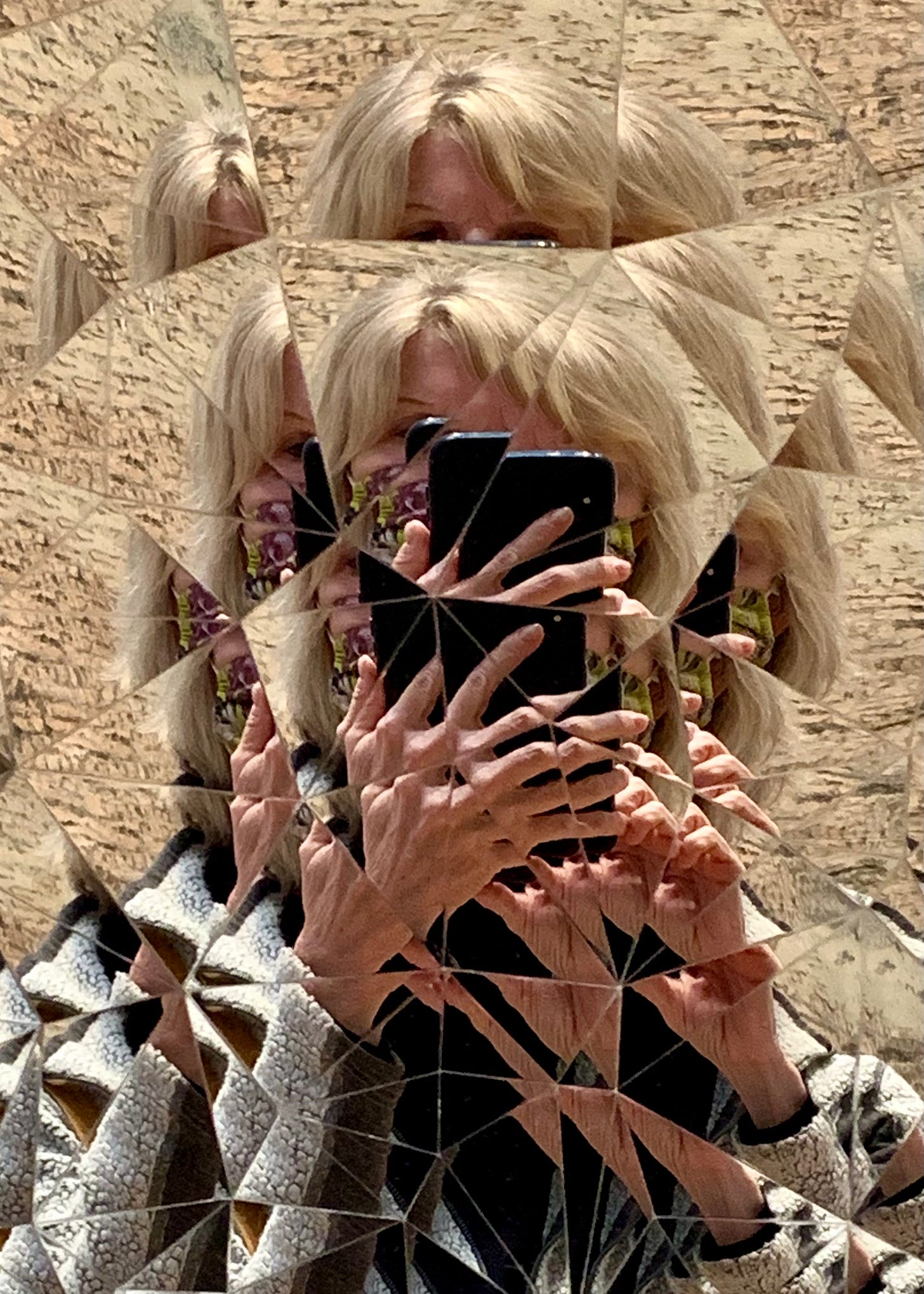Morning journal, 7 March 2020 – Panicked emails from Stephen, who’d flown from DC to Los Angeles, only to be told his 8-9 days paid production gig was cancelled. He was told to take an immediate flight back to the east coast. Thousands of dollars of work evaporated for him.
It’s surreal. Everything is cancelled. Amazon and Google are both closed, everyone has been told to work from home. SXSW is cancelled. The PBS Annual Meeting in Seattle is cancelled, and with it, my trip to Seattle to see Zoë and spend our first Mother’s Day together in at least a decade.
Normalcy is cancelled. Enter an eerie and weird limbo.
With the emergence of a global pandemic, the world suddenly lurched into uncharted territory. We were individually isolated, but united in our confusion and frightening lack of understanding about what on earth was going on.
Despite this unforeseen plot twist, however, it felt like the films and story frames once again had my back, as I found myself in what was a highly unusual position for me – in advance of a work trend. Having been asked to leave the documentary workshop back in 2000, I had already had twenty years of experience as a remote or freelance worker under my belt.
Morning journal, 8 March 2020 – I rearranged some of the art on my walls because for some reason it felt important to get that right. Who does that in the face of an impending pandemic?! Today I’ll clean the house and, if it’s not too windy, work in the gardens for a bit. And try to wrap my head around the weirdness of life these days.
As the daughter of a computer guru, I was also lucky to be in the right era for technology.
I was still in high school when NASA physicist and engineer Jack Nilles laid the foundation for modern remote working in 1973, coining the term "telecommuting" nearly 50 years before the Covid pandemic.
Morning journal, 10 March 2020 – I bought some hunker-down food supplies yesterday, lots of Indian food, rice, quinoa, plus tins of sardines, tuna and mussels from Spain and Portugal. And chai. The latest case of this Covid flu was just reported in Spartanburg, South Carolina. It’s getting closer to Asheville.
By 1983, what had started with a handful of remote workers rose to two thousand as IBM’s call center staff—who conducted their work via phone anyway—had the option of doing so from home.
The first website came into being in 1990, the year Leif was born.
Morning journal, 11 March 2020 – Two people just bailed on plans to join us at the White Horse over in Black Mountain for an evening of music this coming Friday. They’d been exposed to someone who’d been with someone who since tested positive for Covid after attending a conference in New Orleans. The National Guard has been called out in New York City. Who knows what today will bring.
In 1998, Jack Nilles reappeared on the scene with a book on remote working – Managing Telework offered “a step-by-step guide to managing a successful, efficient and happy virtual workforce.”
Skype – created by two Scandinavians – Niklas Zennström from Sweden and Janus Friis from Denmark, along with four developers in Estonia – was released in August 2003. Zoom came along in 2011.
Morning journal, 12 March 2020 – We had a lovely dinner out last night at Mela Indian Restaurant downtown with my Indian yoga teacher Venita, and her husband, Darshan. It may be our last night out for … who knows how long? This virus is taking over everything. The NBA has cancelled games until further notice and the World Health Organization has officially declared it a world pandemic. All flights from Europe to the US are being cancelled, which means Leif cannot now come home from his university in Finland. He just sent me a photo of the empty grocery store shelves there.
So, no Zoë or Leif visits for the indefinite future. I still have that cartoon image of myself in my head, the one with two very long arms – from Asheville to Seattle, and from Asheville to Finland, where Leif is now in his fourth year of university. How on earth do I ‘mother’ in times like these?
Working remotely has boomed in the last decade and is predicted to keep growing in the post-pandemic world. I felt lucky to have parted ways with the documentary workspace, even if it hadn’t been my idea.
Altogether, I promoted 18 documentaries in 2020 – films about the lives of professional female chefs, the history of women’s emancipation, vertical greenhouses that trained and employed workers with Down Syndrome, LEGO robotics competitions, American farmers, Afro-Latino culture in South America, the internment of Japanese Americans, the future of energy, the need for living wages, slavery, breast cancer, music, and a pioneering village of small houses for the homeless in Austin, Texas.
These films kept me connected to filmmakers all over the country. They kept me connected to ideas, issues and, most importantly, to people and the world.
Because documentaries can often take years to make, I had a robust pipeline of projects in place. These were all films that had been dreamed up, financed, shot, edited, and produced in the years leading up to the pandemic.
But with people and crews suddenly unable to be together on location for new and ongoing work, how long that pipeline would last was anyone’s guess.
Kristin Fellows is a published writer, world traveler, and a well-seasoned documentary film consultant. When not writing, Kristin can often be found listening to someone’s story or behind the lens of one of her cameras.
More about Kristin @ kristinfellowswriter.com






The pandemic seems like so long ago now. It's interesting to read your journal entries from when we didn't really know what was going on.
I get the pandemic story but I’m struck this morning about the importance of the written word. You journal, you return to a time and review thoughts/action with renewed perception. If everyone would take the time to “leave tracks” how fortunate the world would be. What a treasure when captured-thoughts are discovered by others, particularly family/friends. A big topic but I’ll leave it at that. ☺️ Thank you.